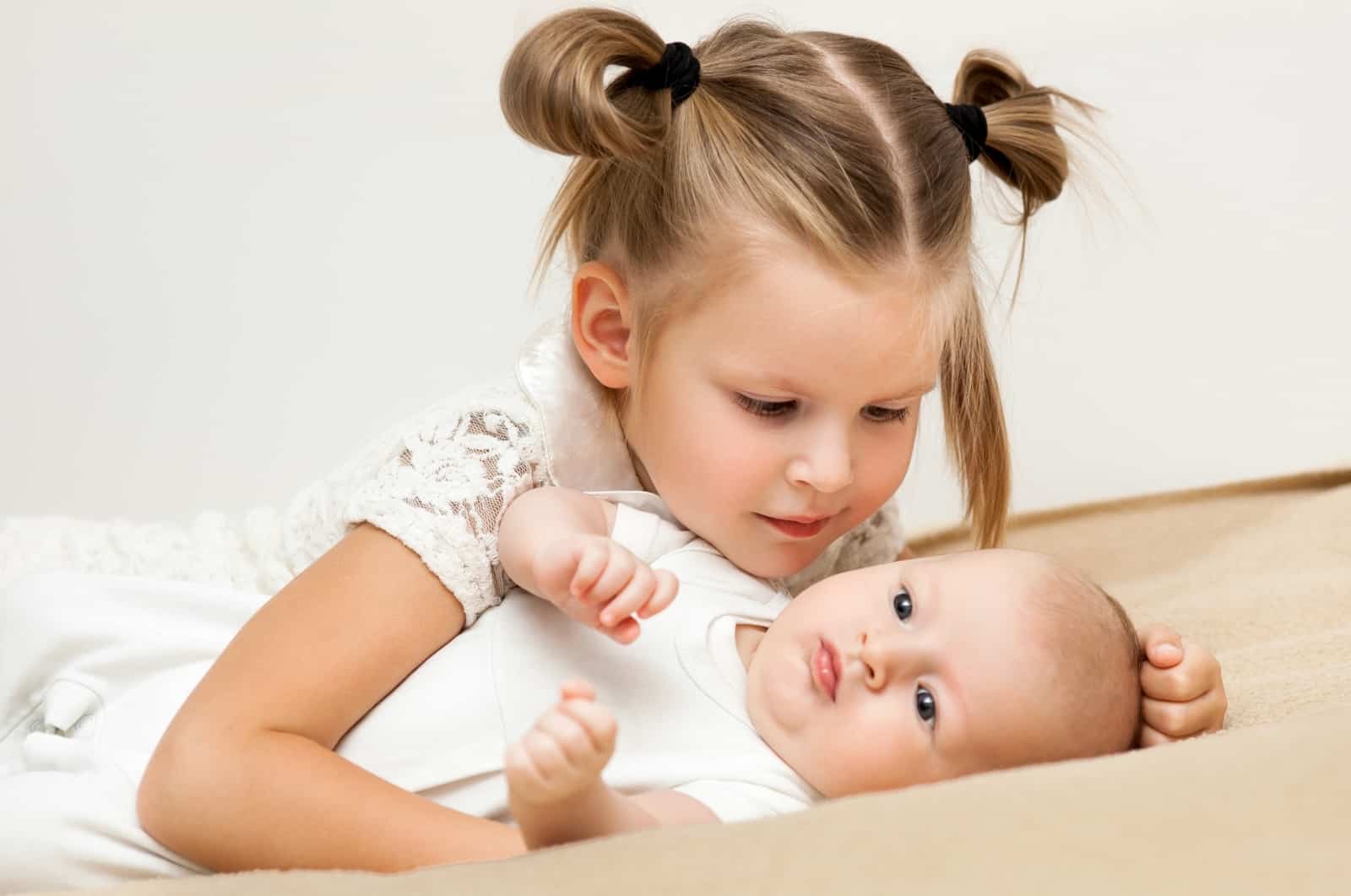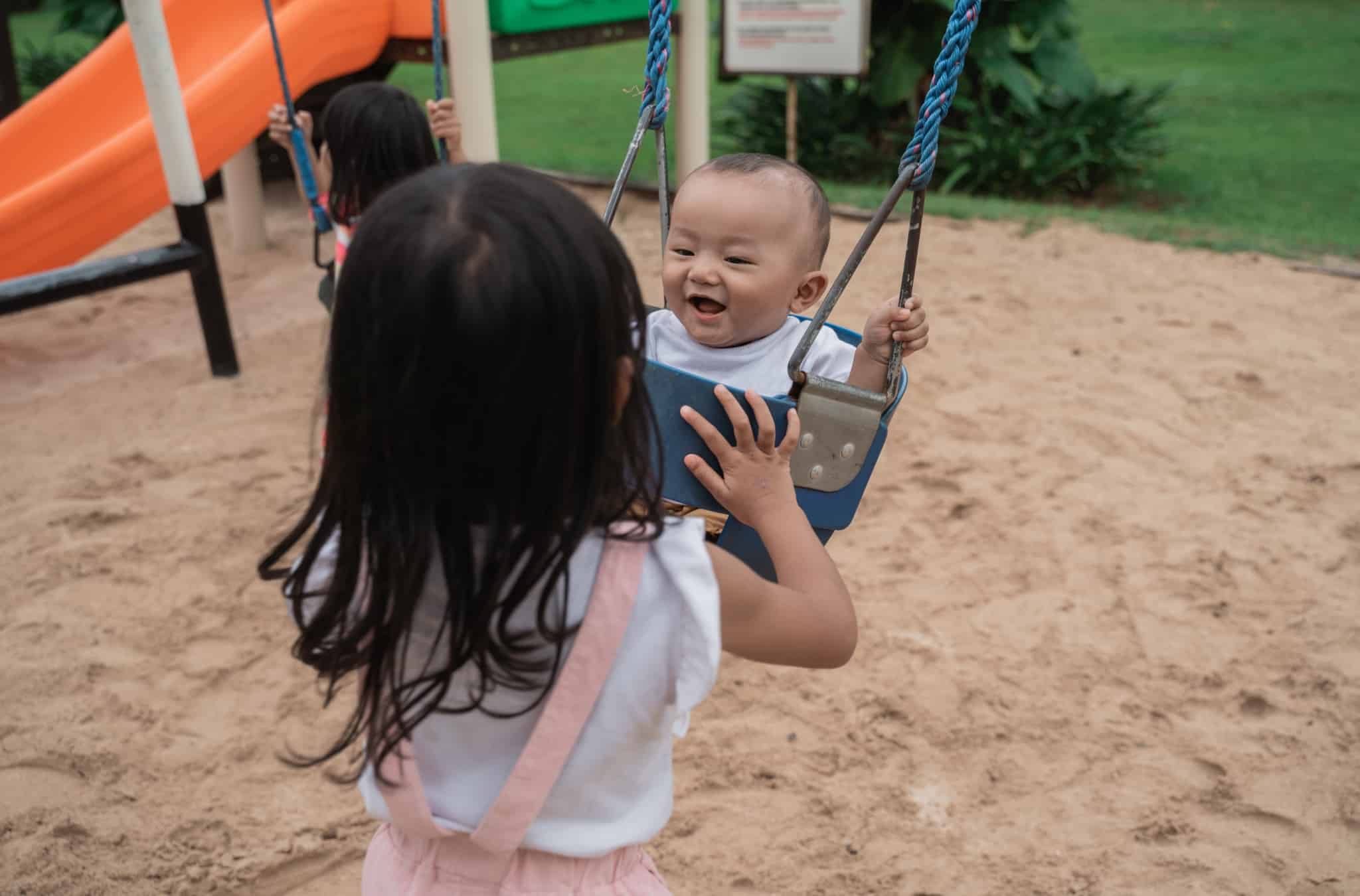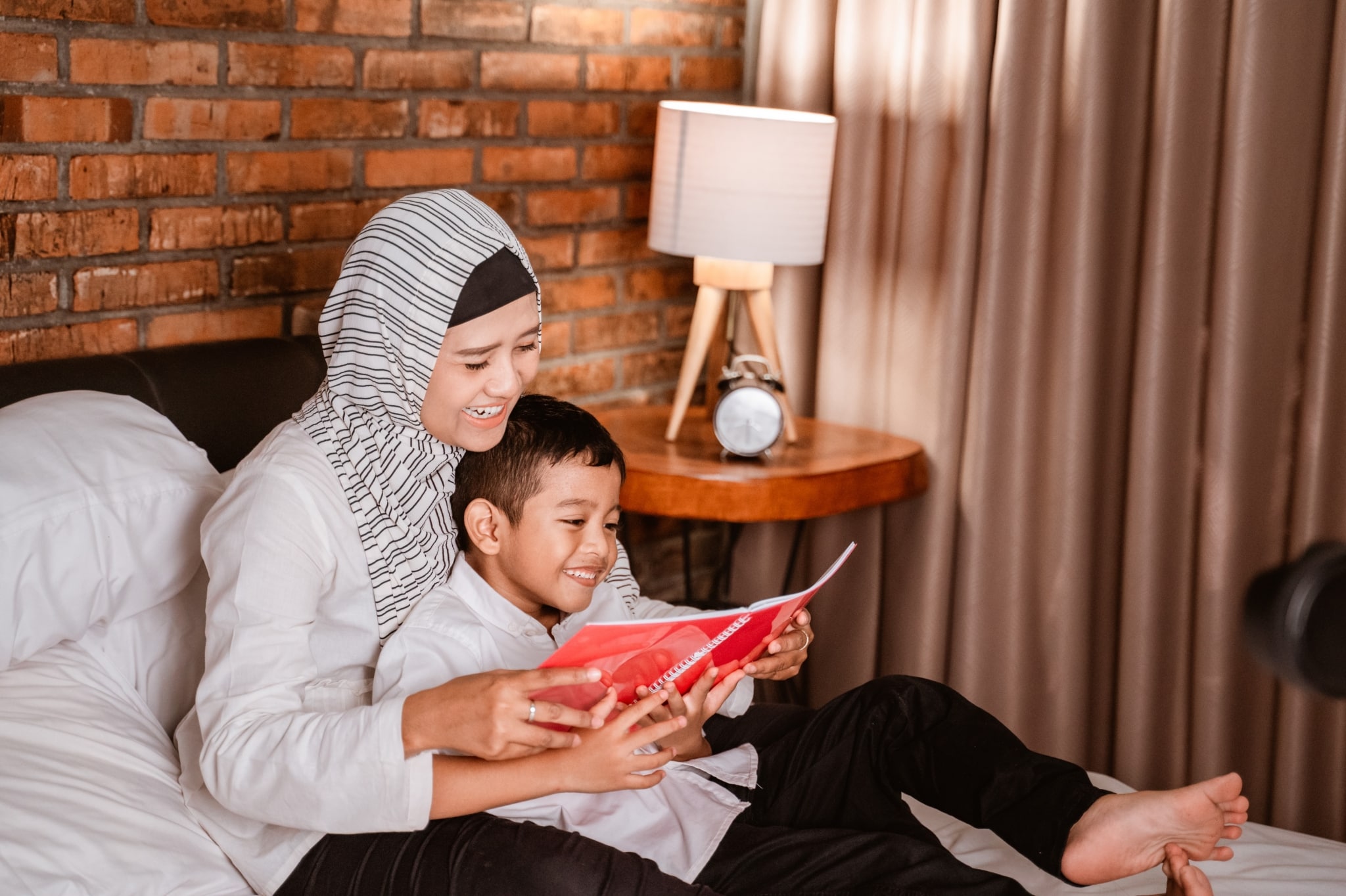When One Becomes Two!
5 ways to help your child welcome a new sibling.
Welcoming a new baby into the family is an exciting time and of course this momentous event comes with new challenges.
You have two children to focus on now; a balancing act of care-giving, emotional support, physical reassurance, expressions of love, attention and don’t forget to throw in the all-important self care too!
It is natural to feel worried about how your older child will react to the new baby. All second time parents experience these same feelings! Just remember that meeting a new sibling is a wonderful experience for a child and that the inevitable challenges are all part of life’s lessons.
It’s common for older children to feel jealousy towards the baby and to react by acting out. No matter the age of your first child, it will take some time for them to adjust to being an older brother or sister, so patience is key – as it is with most parenting!
But as you prepare for the new baby’s arrival, there are things you can do to help your first born prepare too. Here are some tips to help things go more smoothly.
Communicate change early
The more time a child has to get used to a new idea, the better.
In the lead up to the arrival of the new baby, talk to your child about their sibling, how they are going to be a big brother or sister and focus on the positives.
Explain to them that they will have someone to play with when the baby is older. While you want to focus on the positives, try not to exaggerate the idea or they may be disappointed by the initial difficult stages when the new baby first comes home.
If you have friends with newborns, try to spend some time with them so your child can get used to having a baby around and gain more insight into the level of care that babies need.
Showing your child pictures of themselves as a baby, or reading stories about new babies and big brothers or sisters, can also help them get used to the idea that their family is growing. When the baby starts to kick you could let them feel your tummy or even listen to the baby’s heartbeat during a doctor’s visit.


Prepare for the hospital stay
During your hospital stay your firstborn might be worried about you and upset that you are away. Explain to them where you will be in advance and who will be looking after them, and remind them of this in the lead up to the big day.
To help your child feel secure, try to organise for their routine not to change too much while you are in the hospital. If you are feeling well enough, arrange times for your child to visit you and the new baby in hospital. If this can’t happen, make sure to make time for phone calls.
get them involved!
You can involve your child in getting ready for the new baby, and when the baby arrives, caring for them. They could help with decorating the baby’s room or choosing toys for their new sibling. Including your child in this process helps them feel part of the change to the family and makes them more likely to see this growth as a positive experience.
Talk to your child about how they can help with the new baby once they arrive. This could mean pushing the pram (with guidance), helping get ready for bath time or singing songs to the baby. Children love to feel like they are helping and this can even help them develop their confidence and independence.


Be patient with behavioural changes
It is very common for older children to act out when a new sibling enters the family. They may be excited and welcoming at first, but may struggle with the concept of sharing the spotlight when it comes to your attention. As a result, they may try to get your attention by breaking rules. To young children, even negative attention is still attention.
Your patience and understanding of this will be vital. So steel those nerves, gather your wits and get used to taking some deep breaths! Negative behaviours will pass as long as you keep your cool and provide the structure, rules and guidance that children need. This needs to be combined with positive reinforcement, praise and attention for when your firstborn is behaving well in order to encourage positive behaviour.
Many children also regress or act younger after a new sibling is born. This could include drinking from a bottle or having toilet training accidents. Be patient and understanding, as this is a normal reaction to stress and it will pass.
Above all, listen to your child and make sure you have an open dialogue about their feelings of being a big brother or sister, so that you can build their reassurance.
share the love!
Children can experience fear that you will love them less now you have a new baby. As adults, we know this isn’t true, but don’t dismiss this fear in your child. Continually reassure your child before and after the baby arrives that you love them just as much as the new baby. Make sure they know there is plenty of love to share around!
It is no secret that a new baby takes up a lot of time and attention! Even though you will be busy and tired, try to spend some regular one-on-one time with your older child. Show your child you are still there for them and help them feel secure.
A routine can help here, even if it is just a few minutes of reading a book with your older child before bed. Begin this new routine before the baby comes and continue it after.

So congratulations on your growing family!
Prepare yourself for some challenges in this balancing act, but be patient and be reassured that your firstborn will adjust to the new baby and a new normal will be found. And once your new baby gets a bit older, your firstborn will have a partner in crime to get up to all sorts of mischief with and keep you on your toes! Good luck!

